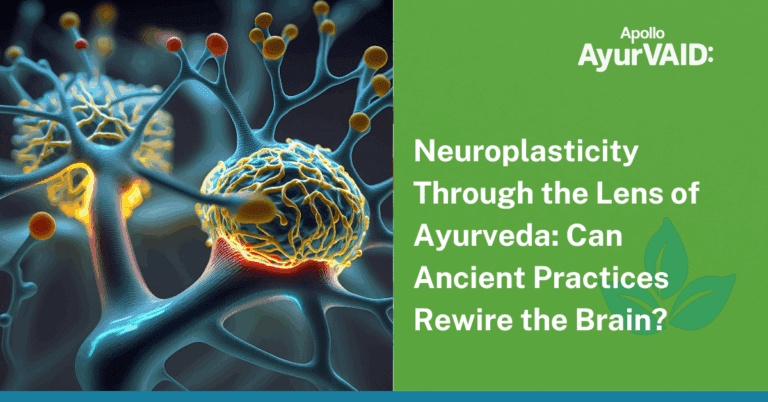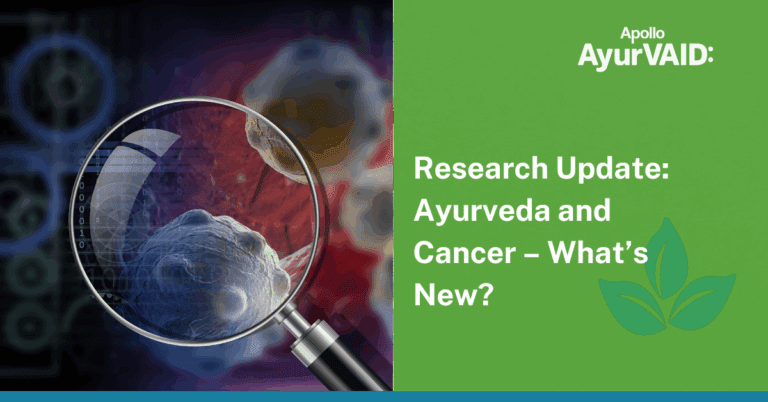Introduction
Piles, or haemorrhoids, is a prevalent condition affecting millions of people. The swelling or inflaming of veins in the rectum or anal canal leads to pain, discomfort, and bleeding. Knowing what are the symptoms of piles? What are the causes of piles? is essential as it significantly affects day-to-day life.
Ayurveda’s comprehensive approach treats piles by addressing the symptoms and root causes. Ayurvedic treatment for piles offers long-term relief and prevents recurrence through natural herbs, dietary changes, simple para-surgical treatments (ksharasutra), and lifestyle changes. Also, simple and very effective Ayurvedic home remedies for piles can reduce pain, itching, and constipation, allowing for the natural management of the condition from home.
In this blog, let’s discuss the symptoms, causes, and Ayurveda solutions for piles, offering a guide toward natural healing.

What Are the Symptoms of Piles?
The symptoms of piles vary depending on the location (internal or external). Internal hemorrhoids usually manifest as painless rectal bleeding, while external hemorrhoids are generally asymptomatic or may become associated with severe discomfort and soft swelling in cases of thrombosis. Some common clinical features include loss of appetite, anal pain with interference with stool passage, body oedema, anxiety, headache, vomiting, rectal bleeding, backache, insatiable thirst, and emaciation.
The most common symptoms in Arshas (piles) patients, according to classical texts and clinical presentations, are:
- Gudagaurava (Heaviness in the anus): A heaviness or feeling of pressure in the anal region caused by the pile masses obstructing the stool path.
- Gudashula (Anal pain): Sharp, throbbing pain in the anal area during defecation, caused by inflammation of the pile masses.
- Raktasrava (Bleeding per rectum): Expulsion of fresh blood from the anus during or after defecation, caused by rupture of pile masses.
- Kandu (Itching): Persistent itching sensation around the anal region due to inflammation or secretion discharge or collection of secretions.
- Srava (Discharge): Unctuous, foul-smelling discharge from the pile masses, particularly in Pittaja and Kaphaja Arshas.
- Gudapaka (Burning sensation in the anus): Severe burning sensation in the anal region due to aggravation of Pitta/inflammation of the pile masses.
- Mala Vibandha (Constipation): Hard stool or difficulty in the passage of stool due to vitiated Vata / obstruction mechanically due to mass piles.
- Udarashoola (Abdominal pain): Spasmodic or colicky pain in the lower abdomen brought on by constipation or distension.
- Aruchi (Loss of appetite): Diminished desire for food owing to dyspepsia, flatulence, or psychological disturbance associated with piles.
- Angamarda (Body pain): Generalized body pain or fatigue caused by chronic constipation, blood loss, or associated systemic conditions.
What Are the Causes for Piles?
Haemorrhoids are often described as varicose veins of the anus and rectum. The exact cause of haemorrhoids is still unknown, but lack of exercise a sedentary lifestyle and a low-fibre diet are considered to be risk factors. The key causes are –
- Increased Intra-abdominal Pressure: Straining or sitting long hours or lifting heavy objects indiscriminately generates excess pressure in the abdomen and pushes the anal veins outward giving rise to piles. It causes the veins to be weak swollen and painful over time.
- Chronic Constipation: Straining during stool passage due to constipation intensifies pressure exerted on the anal veins. This strain, when repeated, may lead to both swelling and inflammation of the veins.
- Pregnancy: During pregnancy, hormonal changes and the developing baby pressing against the lower abdomen slow bowel movements, causing piles. It is quite noticeable in the third trimester.
- Dietary Factors: Low fibre in the diet causes harder stools and constipation. This increases the risk of developing piles.
- Sedentary Lifestyle: An inactive life slows digestion and bowel function, making stools hard. Prolonged sitting adds pressure to the anal area.
- Genetic Predisposition: A person has a higher chance of developing piles if the family has a history of piles. Weak vein walls can pass through generations.
Ayurvedic Treatment for Piles
In Ayurveda, piles (Arsha) are considered a significant health issue linked to Mandagni (poor digestive fire) and influenced by lifestyle and diet. Ayurveda treatment includes a fourfold approach:
- Bheshaja (medicinal treatment): Arsha can be treated with internal medicines in the initial stages, Ingredients having properties like Ushna Veerya (hot potency), Deepana (appetiser), Pachana (digestive), Vatanulomaka (carminative), and Srotosodhana (channel purifier) are used to disrupt the pathogenesis and cure the disease. Snehana (oleation), Swedana (sudation), Vamana (emesis), Virechana (purgation), and Vasti are also administered based on the dosha predominance and the patient’s strength to withstand the therapies.
- Kshara Karma (herbal caustic paste): It involves the application of herbal caustic paste locally. Kshara is manufactured from the ashes of therapeutic herbs and is versatile because it can be used internally and externally. Piles caused by Vata and Kapha should be treated with Teekshna Kshara (strong), while those caused by Pitta and Rakta should be treated with Mrudu Kshara (mild).
- Agnikarma (thermal treatment): Thermal heat burn or cauterization. Agni Karma can treat illnesses incurable by other means and is superior to Kshara Karma because ailments do not recur. Arshas, which are hard, stable, broad, and solid, are treated using Agnikarma.
- Shastra Karma (surgical intervention): Surgery is considered when conservative measures are ineffective, typically for prolapsed and internal haemorrhoids. It is minimally invasive. Ksharasutra or Kshara is applied to the pile mass to shrink it and prevent recurrence. It aids in sloughing haemorrhoidal mass, fibrosis, and scar formation, resulting in faster healing with no severe adverse effects.
Apollo AyurVAID offers Precision Ayurveda for piles treatment to assure you of lasting relief with minimum discomfort. Eliminating factors such as pain, itching, bleeding, and other root causes like constipation, weak digestion, and dietary habits, our approach assures a long recovery and full prevention from recurrence. The patients are assisted physically with fast healing through minimally invasive treatments, customized medications, and diet plans, with maximum sphincter function and a low incident rate for post-treatment complications. Choose Apollo AyurVAID for safe, effective, and holistic care to help you get back on track sooner and healthier!
Ayurvedic Home Remedies for Piles
Home remedies can provide relief from symptoms and promote healing. A diet that includes horse gram, barley, wheat, red rice, spreading hogweed, and elephant foot yam can be beneficial. Buttermilk, Indian gooseberry, wood apple, butter, pointed gourd, and black pepper are also included.
Following recipes can reduce the symptoms associated with piles and provide relief too.
- Drink plenty of water to aid digestion and prevent constipation.
- Consuming buttermilk mixed with rock salt, ginger, and pepper can help relieve haemorrhoid pain. Additionally, combining bitter gourd with buttermilk is beneficial in treating piles.
- Consuming Isabgol or castor oil after dinner ensures proper stool elimination in the morning.
- Drinking radish juice or utilising radish in your diet is beneficial to reducing pain and relieving constipation.
- Onions fried in ghee can be eaten with lunch and dinner.
- Avoid tea, coffee, alcohol, non-vegetarian, spicy, and processed food.
- It is advisable to maintain a healthy weight to lessen pressure on the rectum. Take frequent breaks without sitting for long.
- Keep yourself active by walking, swimming, and doing yoga.
- Apply coconut oil to the rectum area before and after defecation.
- Soak the anal area in warm water or medicated decoction for 10-15 minutes several times a day to relieve pain and reduce inflammation.
- Natural remedies like aloe vera gel or neem oil can be applied to reduce irritation and swelling.
Conclusion
Piles, also known as haemorrhoids, is a condition characterized by bleeding, pain, itching, and even sometimes discharge or maybe a swollen vein in the rectum or anus. The causes of piles include rising intra-abdominal pressure, constipation, pregnancy, food factors, lifestyle inactivity, and hereditary tendencies. The Ayurveda treatment module provides a fourfold approach: Bheshaja (medicinal treatments), Kshara Karma (herbal caustic paste), Agnikarma (thermal treatment), and Shastra Karma (surgical intervention), suited to the dosha imbalance of individual patients and the severity of the ailment. Ayurveda home remedies provide easy access via dietary changes, ensuring proper hydration, using certain food combinations, and topical applications. While treating both symptoms and root causes using natural herbs, lifestyle changes, and personalized sources of intervention, Ayurveda offers a very effective comprehensive approach for lifetime management and recurrence prevention in piles.

References
- Ram, B et al. (2023). MULTIMODAL TREATMENT APPROACHES FOR ARSHA: A CRITICAL REVIEW. August – September 2023. https://doi.org/10.46607/iamj09p7062023
- Y., R (2022). Conceptual view on Arsha and its Management through Ayurveda Prospective. International journal of Indian medicine. https://doi.org/10.55552/ijim.2022.3404
- Kasar, M G S et al. (2023). Herbal Treatment for Hemorrhoids (Piles) International Journal of Advanced Research in Science, Communication and Technology. https://doi.org/10.48175/ijarsct-8375
- Rao, S, Lakshmi, T (2014). Natural Remedies for Haemorrhoids and Bleeding Piles –An update. Research Journal of Pharmacy and Technology, 7, 253-254. https://www.semanticscholar.org
/paper/e0b3d9f43d6d00399a22
1cc1f2307f9cea44694d - Khode, N et al. (2017). HOLISTIC LIFE STYLE AND FOOD HABITS FOR EFFECTIVE MANAGEMENT IN ARSHAS (HAEMORRHOIDS) – AN AYURVEDIC VIEW. International Journal of Ayurveda and Pharma Research, 4. https://www.semanticscholar.org
/paper/f9a0d2f3b36aff0a6210
133040adbfe0cce7b4b6






